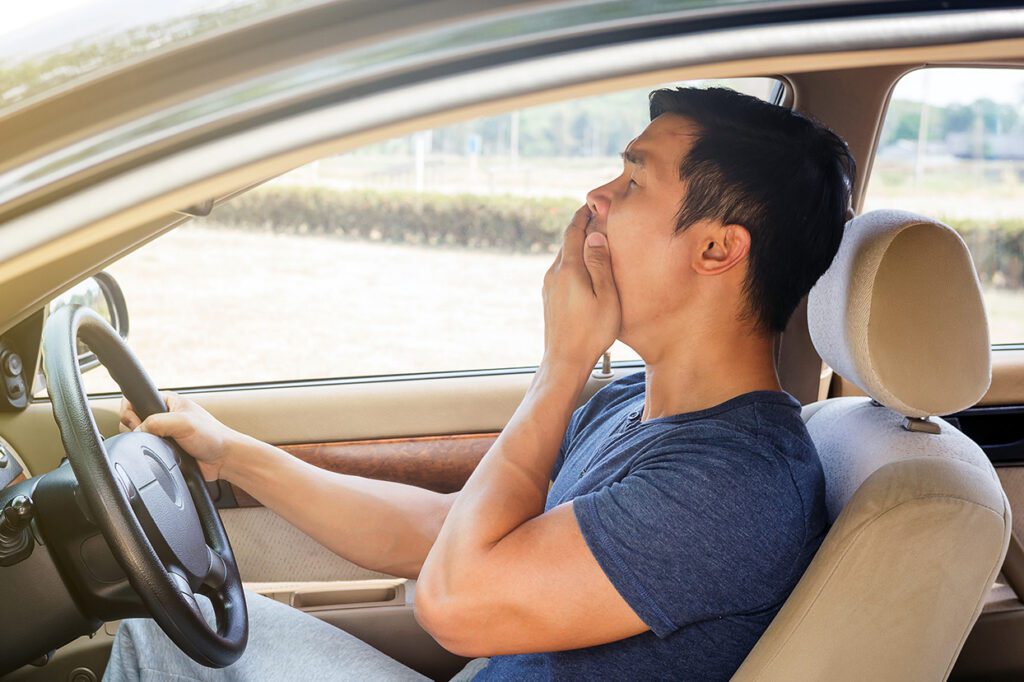A blood test to measure whether a driver who has caused an accident was impaired by lack of sleep could be available within two years, making it easier to prosecute drowsy drivers or their employers.
According to The Guardian:
The research, funded by the Australian Government Office of Road Safety, comes as fresh evidence suggests that driving on less than five hours’ sleep is as dangerous as being over the legal drink-drive limit in many countries.
It could also provide a “line in the sand” that could enable people to be prosecuted for driving while fatigued, which many sleep experts are calling for.
“There has to be a system to check whether someone has had enough sleep, because they could be putting other people’s lives at risk,” said Prof Steven Lockley, a sleep expert at Harvard medical school, who advises Nasa on sleep safety.
Prof Clare Anderson, at Monash University, in Melbourne, Australia, who is leading efforts to develop a blood-based test, said: “When you look at the major killers on the road, alcohol is one of them, speeding is another, and fatigue is one of them.
But even though the solution to fatigue is quite simple, which is to get more sleep, our capacity to manage it is impaired because we don’t have tools to be able to monitor it like we do with alcohol.”
Many sleep experts agree that legislation is needed to reduce deaths from drowsy driving.
Almost half of UK drivers have admitted to driving after less than five hours’ sleep, while experts estimate that fatigue-related crashes are likely to account for up to 20% of all UK vehicle collisions, and one quarter of fatal and serious crashes.
Anderson’s team has identified five biomarkers in blood that can detect whether somebody has been awake for 24 hours or more with greater than 99% accuracy.
“They are really strongly related to how long somebody’s been awake, and they’re consistent across individuals,” said Anderson. “Some of them are lipids, some of them are produced in the gut, so they’re from different parts of the body – which is interesting, because sleep is implicated in a number of different health problems. But they are not metabolites that are involved in things like caffeine or anxiety or adrenaline, which could be affected if somebody has been involved in a motor vehicle crash.”
Follow-up studies conducted in conditions closer to real-world situations have also indicated that these biomarkers can detect whether or not someone has slept.
“We still get close to 90% accuracy at being able to detect sleep loss, which is pretty high considering all the things that are going on in people’s lives beyond just sleep,” Anderson said.
Further work is needed to validate the markers and investigate whether they can quantify whether someone has slept for, say, five hours or just two.
Anderson believes that a forensic blood test for sleep deprivation, which could be conducted alongside existing drug and alcohol tests if somebody is taken to hospital after a vehicle crash, could be ready in as little as two years.
Portable roadside tests will take longer, because sensors and devices to detect the biomarkers still need to be developed. However, Prof Shantha Rajaratnam, also at Monash University, said that “with the right investment to be able to scale this, I reckon that within five years we will be able to implement these biomarker-based tests – at least in safety-critical industries such as trucking, commercial aviation and mining”. Rajaratnam leads an Australian government-funded research and development consortium called the Alertness CRC, which Anderson’s research forms part of.
Dr Madeline Sprajcer, a sleep researcher at Central Queensland University in Wayville, Australia, said such tests would go a long way to solving some of the enforcement issues associated with setting a legal drowsy driving limit.
“This seems to be a barrier to a lot of the people we’ve spoken with,” she said. “You can’t have a law if you’re not able to enforce it.”
Also needed is an agreed legal threshold for the minimum sleep that a motorist requires to drive safely – similar to the 0.05% blood alcohol cutoff, which many countries, including Scotland, have set as their legal drink drive limit. The threshold is 0.08% in the rest of the UK.

